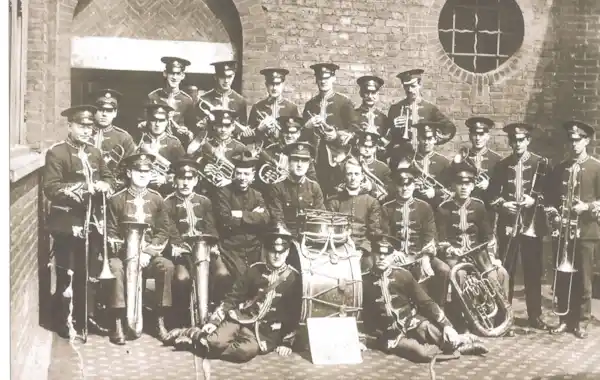So, you've been tracing your family tree for several years and 'collected' hundreds of ancestors. But could or should your family tree ever be classed as complete? In his latest blog, Paul Chiddicks takes a look at ways to branch your tree out into new directions.
For me personally my own view is that “a genealogist's work is never done”, after all, with each new birth and generation that emerges, a new branch on your tree starts to grow.
So what are the alternatives for you when the family tree “well” has run dry and the next step backwards has proved impossible? What else can you add to your tree that will add value to your research? Let’s look at a few alternative ways that you can grow your tree.
![]() 1. Research burial places
1. Research burial places
Have you found all the burial places of your ancestors, for example? A difficult challenge, I know. I am currently going back generation-by-generation and trying to find each ancestor's burial location, and my intention is to photograph each grave.
A tall order, but I find nothing better than wandering around churchyards and graveyards. This might not always “grow your tree”, but I have been fortunate on two occasions to find another ancestor buried with the one I was looking for.
See my previous blog regarding planning a visit to where your ancestors once lived, as this is another good way of adding value to your tree. This also will bring your tree and your ancestors “to life”.
2. Working lives
Take a more detailed look at your ancestor’s working life and the companies for whom they worked. Is there a company website covering the history of the company, or maybe your ancestor gets a mention in the company archives somewhere?
.jpg) I have several generations who have worked for Boots the Chemist, so a recent article in Family Tree magazine proved invaluable. Also, my grandfather was a London fireman, so I was able to get access to his career details by writing to the London Fire Brigade’s archivist. So take a look deeper at your ancestor’s working life. Were they a tradesman, can you find more details on the trade itself and some background history?
I have several generations who have worked for Boots the Chemist, so a recent article in Family Tree magazine proved invaluable. Also, my grandfather was a London fireman, so I was able to get access to his career details by writing to the London Fire Brigade’s archivist. So take a look deeper at your ancestor’s working life. Were they a tradesman, can you find more details on the trade itself and some background history?
3. Military connections
If you have a military connection why not trace your ancestor’s military career in more detail? Study the battalions and regiments, look at the regiment history and troop movements. Explore war diaries, and if they served in WW1, for example, why not create a timeline for their military service, adding detail and depth to your tree?
4. Family origins
You could also consider looking at the origins of your own name, especially if it’s not a common name. I still have not been able to find a defined answer to my own unusual name of Chiddicks. My own theory is it possibly has origins from the village of Chideock in Dorsett, but I am still trying to prove this theory. So why not investigate your own name further?
Maybe consider starting a genealogy course. It might not grow your tree initially, but with new improved skills and knowledge, it could prove useful in future years.
5. Presenting your research
 Have you considered how you want to present your work? Do you have an ultimate goal with your family history research? Maybe now is a good time to consider this, have you thought about writing a book?
Have you considered how you want to present your work? Do you have an ultimate goal with your family history research? Maybe now is a good time to consider this, have you thought about writing a book?
Another option of presenting your work is via your own family tree website. There are lots of online helpsheets and guides, should you choose either writing a book or creating your own website. Another option if you feel up to the challenge is starting a one-name study, again there are lots of guides and help online should you wish to take up this kind of challenge. I have recently joined the Guild of One-Name Studies.
There are lots of different ideas that can help you long term with your tree and hobby, those listed above are just a few suggestions and are by no means an exhaustive list. However you choose to continue your family tree hobby will depend on your own personal viewpoint and what you enjoy doing… just remember, though, your tree doesn’t just end with births, deaths and marriages, why not try to grow it in a slightly different direction?
Follow Paul on Twitter and his blog.
Researching the names: Chiddicks in Essex; Daniels in Dublin; Keyes in Prittlewell; Wootton in Herefordshire and London; Jack in Scotland.
And for more help tracing your ancestors, try a copy of our monthly magazine. We cover every aspect of family history and offer easy and helpful ways to trace back even further!








.jpg) 1. Research burial places
1. Research burial places